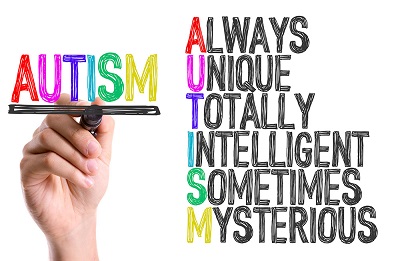As well as dyslexia, we like to feature content about other ‘Dys-Diffs’ (our word for conditions on the nuero-diverse spectrum.) Last weeks we heard from Leena, an autistic candidate on the BBC’s Extend Scheme, talk about her Coping Strategies for those with Autism. This week, we have her line manager Sean Gilroy sharing his experience from his management point of view. The blog posts written by Leena and Sean discuss the lessons learned by each party as they gain a greater understanding of each others’ unique perspective on the world.
A couple of years ago I was looking to bring a finance assistant into my team, under a scheme arranged by my company specifically aimed at recruiting people with disabilities. The successful candidate happened to have ASC, Autism Spectrum Condition; a condition I thought I was aware of. Two years later, I would more accurately describe this as my having heard of Autism, but not actually being aware of autism. So, having been a line manage for someone on the Spectrum, here are my top 5 things to consider if you are, or are about to be in a similar position.
1. Have some awareness of the condition.
If your first thoughts of someone with Autism or Asperger’s conjure up images of Dustin Hoffman’s character in ‘Rain Man’, or perhaps a Savant who will calculate the day given a specific calendar date, then you have heard of the condition but you are not aware of the condition. The saying goes, that if you have one person with Autism, you have met one person with Autism.
Everyone is different and it really helps you to understand how to support someone if you are aware of the things that someone on the spectrum may find difficult or confusing.
If you prefer visual content, try YouTube for some brilliant films or you can find material provided by organisations such as NAS (The National Autistic Society) or The Codpast! Try your HR or Training department to see what help they can offer and if they don’t have anything, why not ask them to get something – you may not be the first or last person to need this help.

2. Be open minded
It’s all about supporting and helping someone to be able to do their best, so be open minded about how they want to work. Someone might like to have figurines on their desk, wear a hat in the office or perhaps they prefer to use pictures or graphics to help them explain something rather than just talking or writing an email.
There will be a good reason behind everything a person does, so be open minded, listen to them and support them, even if it then means amending some office protocols (don’t just bend the rules, change them – the workplace should be accessible for all).

3. Build up Trust
There is still a lot of Stigma attached to hidden disabilities and it might be that someone has previously had bad experiences at work with managers or colleagues so take the time and build up trust.
Someone on the spectrum will not always be comfortable to ‘disclose’ everything about themselves or their condition immediately. If you are going to be able to support someone properly, you’ll need to be discrete and help them feel comfortable enough to disclose and to help you understand their condition.

4. Structure & Clarity
It is important that you help provide someone on the spectrum with structure. Sudden changes or late notice of events can be difficult for someone to deal with, so try to minimise these things from happening with prior notice where possible and support someone where prior notice isn’t possible.
Regular, scheduled but optional 1-2-1’s each week in the same time slot and for the same duration helps to build this structure and provides a specific time when you can both meet and discuss anything that might be causing issues or anxieties.
You should also make sure you provide clarity when asking for things or explaining things. No unnecessary business jargon, no shades of grey. You should be precise, functional and very black & white. It’s not about being insensitive, it about being clear.

5. It exactly the same as managing someone not on the spectrum!
If you go through the list of things I’ve written so far, you may now notice words such as Support, Listen, Trust, Clarity, Structure – key words for any manager really.
I’ve found that managing someone on the spectrum has made me reassess how I manage everyone that reports into me. I think now about how I communicate with people and how I support them, understanding what works for them and what doesn’t.
It should not be thought of as a burden or extra work; it is just like managing anyone but gives you an opportunity to view things from a different perspective.
Open your mind.
** “Extend is a BBC-wide placement scheme which offers appropriately experienced and/or qualified disabled people a great opportunity to gain six months paid work experience within the BBC. There are many challenging and imaginative placements across the country in both programming and support areas. Over the last 18 years, Extend has recruited 628 disabled people. Further information about the scheme is available on the BBC Extend webpage”**
Words by Sean Gilroy
 Sean Gilroy, Finance Business Partner, BBC North
Sean Gilroy, Finance Business Partner, BBC North
Sean is a Chartered Management Accountant and has worked at the BBC for 8 years. He is now based in Salford with BBC North following the move to MediaCityUK in 2011. An advocate of the BBC’s Extend Scheme and committed to diversity, he managed 4 recruits from the scheme over 2 years including Leena Haque with whom he later collaborated on a project researching Neurodiversity in the workplace.
If you like this post subscribe to this blog, join our newsletter or follow us on Facebook or Twitter to keep up to date with new content. You might also like our podcasts.
The Codpast is a multimedia production from www.extraordinaire.tv







